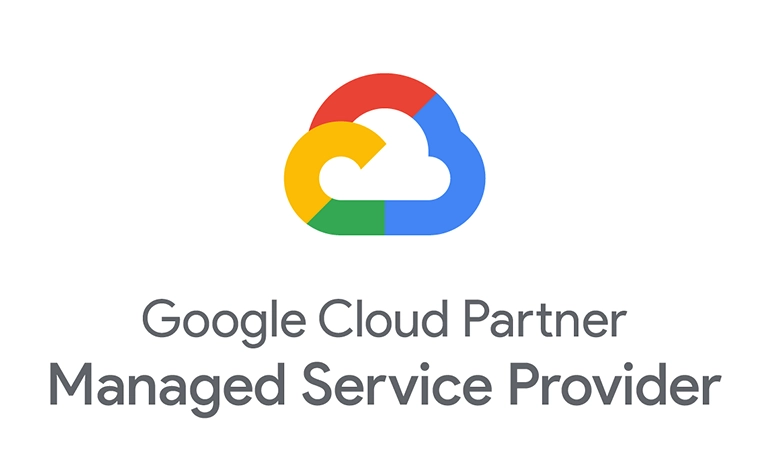Table of Contents
In today’s rapidly evolving digital landscape, businesses are increasingly turning to cloud-based solutions to streamline their operations, enhance scalability, and improve overall efficiency. Google Cloud Platform (GCP) stands out as a leading player in the cloud services market, offering a comprehensive suite of tools and services to meet the diverse needs of businesses across industries. However, managing and optimizing GCP environments can be complex and resource-intensive, requiring specialized expertise and constant monitoring. This is where Google Managed Service Providers (MSPs) play a crucial role.
Understanding Google Managed Service Providers
Google MSPs are third-party organizations that specialize in managing, optimizing, and securing GCP environments on behalf of their clients. These providers offer a range of services, including infrastructure management, application deployment, data analytics, security, and compliance management, tailored to meet the unique requirements of each business.
Key Benefits of Partnering with Google MSPs
- Expertise and Specialization: Google MSPs bring deep expertise and specialized knowledge in managing GCP environments. They stay up-to-date with the latest trends, best practices, and innovations in cloud technology, allowing businesses to leverage cutting-edge solutions without the need for in-house expertise.
- Cost Optimization: By outsourcing GCP management to MSPs, businesses can achieve significant cost savings compared to maintaining an in-house IT team. MSPs offer flexible pricing models, allowing businesses to pay only for the services they need, without the overhead costs associated with hiring and training staff.
- Scalability and Flexibility: Google MSPs enable businesses to scale their GCP resources up or down based on fluctuating demand, ensuring optimal performance and cost-efficiency at all times. They provide agility and flexibility to adapt to changing business needs without the hassle of managing infrastructure internally.
- Enhanced Security and Compliance: Security is a top priority in the cloud environment, and Google MSPs employ robust security measures and compliance frameworks to protect sensitive data and ensure regulatory compliance. They implement advanced security protocols, monitor for threats in real-time, and provide proactive risk mitigation strategies to safeguard against cyber threats.
- 24/7 Monitoring and Support: Google MSPs offer round-the-clock monitoring and support services, ensuring the continuous availability and reliability of GCP environments. They proactively identify and address issues before they escalate, minimizing downtime and maximizing uptime for businesses.
- Focus on Core Business Functions: By offloading GCP management to MSPs, businesses can free up internal resources and focus on core business functions and strategic initiatives. This allows organizations to drive innovation, accelerate growth, and gain a competitive edge in the market.
Choosing the Right Google MSP
When selecting a Google MSP, businesses should consider several factors to ensure they find the right partner to meet their specific needs:
- Expertise and Experience: Evaluate the MSP’s experience and track record in managing GCP environments. Look for certifications, case studies, and client testimonials that demonstrate their expertise and success in delivering quality services.
- Service Offerings: Assess the range of services offered by the MSP and ensure they align with your business objectives and requirements. Whether you need infrastructure management, application development, data analytics, or security services, choose an MSP that can provide comprehensive solutions to meet your needs.
- Security and Compliance: Prioritize MSPs that prioritize security and compliance, especially if your business operates in regulated industries or handles sensitive data. Ensure the MSP has robust security measures, compliance certifications, and a proactive approach to risk management.
- Scalability and Flexibility: Choose an MSP that can scale with your business and adapt to changing needs over time. Look for flexibility in pricing models, contract terms, and service levels to ensure you can easily adjust resources as needed without being locked into long-term commitments.
- Support and SLAs: Evaluate the MSP’s support capabilities and service level agreements (SLAs) to ensure they can meet your uptime and performance requirements. Look for MSPs that offer 24/7 monitoring, rapid response times, and proactive support to minimize downtime and ensure optimal performance.
- Customer Satisfaction: Finally, consider the MSP’s reputation and customer satisfaction ratings to gauge their reliability, responsiveness, and overall quality of service. Reach out to references and existing clients to gather feedback and insights into their experiences working with the MSP.
Conclusion
In conclusion, Google Managed Service Providers play a vital role in helping businesses leverage the full potential of Google Cloud Platform while minimizing complexity, cost, and risk. By partnering with MSPs, businesses can access expert guidance, scalable solutions, and round-the-clock support to optimize their GCP environments and drive business success. However, choosing the right MSP is crucial to realizing these benefits fully. By considering factors such as expertise, service offerings, security, scalability, support, and customer satisfaction, businesses can find the ideal MSP partner to meet their unique needs and achieve their cloud goals.
For More Information Please Visit These Websites Viprow And Vecteezy

